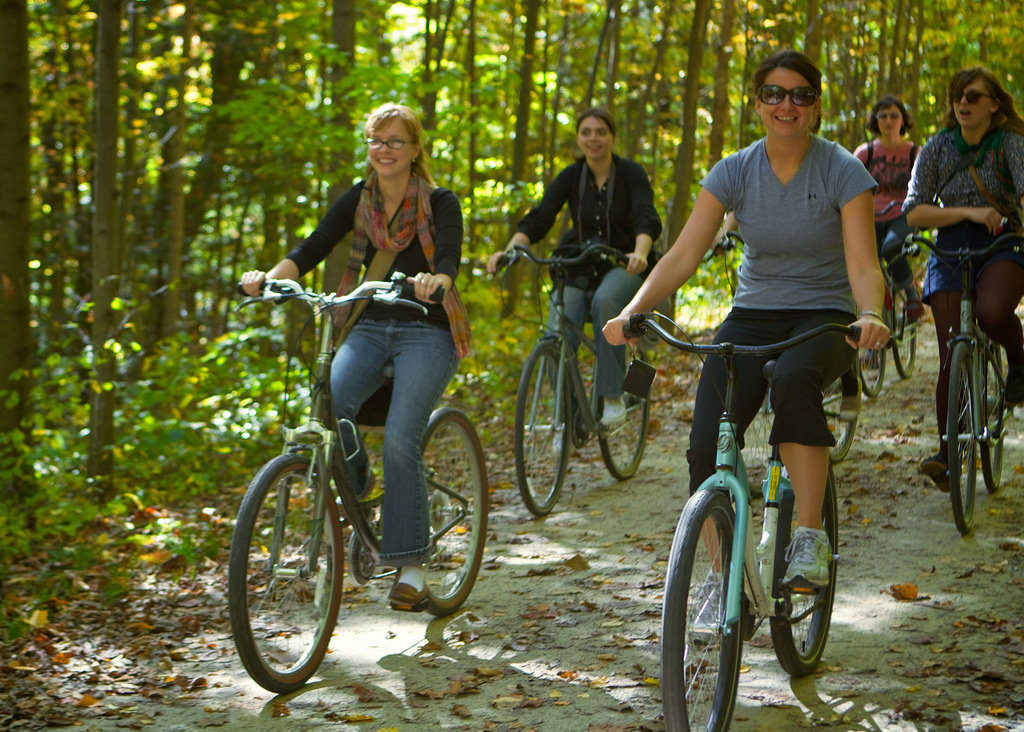
7 Scientifically-Proven Tips to Decrease Holiday Anxiety
Photo Credit: Ben Moore, via Unsplash
The holiday season is supposed to be a happy time, but it can also bring unwelcome guests – stress, anxiety, depression and feelings of isolation. The “holiday blues” often happen because of high expectations, big family dinners, costly presents and the endless list of tasks that get added to our already busy lives. According to a 2015 Harris Poll, 70% of adults say the holidays are their favorite time of year, while 30% say that the holiday season triggers these common mental health challenges.
It is possible to grow a happier brain
Another survey conducted for the American Psychological Association found that during the holidays, people report experiencing many positive emotions, such as happiness (78%), love (75%), and high spirits (60%). However, the survey also found that 38% of people reported their stress increases during the holidays.
More Women Feel Stressed
More women (44%) feel holiday stress than men. That’s because women tend to have more family responsibilities and are more likely to take on tasks associated with family celebrations, such as shopping, cooking and cleaning. Interestingly, many women don’t always think of these added responsibilities as stressful. This may explain why women say they have a harder time relaxing than men during the holidays. While 41% of men strongly agree that they feel like they can relax during the holidays, only 27% of women feel this way.
Too Much Food and Alcohol
All the focus on the positive aspects of the holidays can make us underestimate the effects of holiday stress and prevent us from managing it in healthy ways. One survey that asked people how they manage their stress found that 43% of people say they sleep and watch TV or movies. Food and drink are a big part of many holiday celebrations, so it’s not surprising that we are more likely to turn to food and alcohol to reduce stress during the holiday season (56 percent report eating to reduce stress versus 38 percent during the year and 30 percent use alcohol during the holidays versus 18 percent during the year).
Here are seven scientifically-proven tips that will inspire you to make healthier choices for managing holiday stress
1.Go Outdoors
A set of three studies at the University of Michigan showed that spending 30 minutes outside in sunny weather improved mood and memory. (On average, Americans spend 93% of their time indoors.)
2. Smile – A lot, and Laugh
A Michigan State study suggests that if you fake a smile throughout the day, it will make your mood worse. You will improve your mood, however, if you offer a “real” smile, which can result from cultivating positive thoughts. (A fake smile is lips-only, while a real smile also engages your eye sockets.)
3. Spend Time with Your Friends and Family
Several studies have found that time spent with friends and family makes a big difference to how happy we feel, generally. George Vaillant, the director of a 72-year Harvard study of the lives of 268 men was asked what he had learned from the study. His response: “That the only thing that really matters in life are your relationships to other people.”
4. Get Involved in Your Community and Participate in Community Celebrations
They will contribute to your happiness through a sense of belonging and having strong social connections.
5. Help Others
An eight-decade long Stanford University study found that beyond the size of one’s close social network, the clearest benefit of social relationships comes from helping others. Those who help loved ones, friends and neighbors, advising and caring for others, tend to be happier.
6. Go for a Brisk Walk
Studies show that kind of activity spurs the release of proteins in the brain called neurotrophic or growth factors, which cause nerve cells to grow and make new connections. The improvement in brain function makes you feel better.
7. Meditate
A recent study at Kyoto University gave new insight on where happiness happens in the brain: an area called the precuneus. Other studies have shown that meditation increases grey matter mass in the precuneus, so this study suggests that it is possible to grow a happier brain.
Happy holidays don’t only result from the good things that happen. Science tells us that the choices you make can contribute to your happiness – at least to some extent. Your happiness has more to do with how you choose to spend your time, and your mindset, than anything else.
What activity did you find effective for managing your holiday stress?








